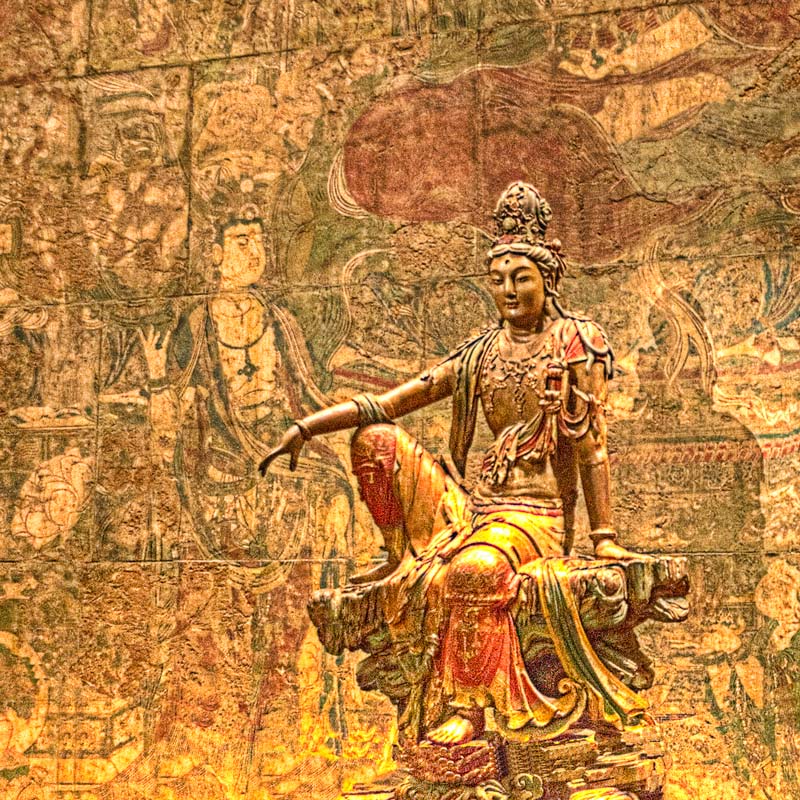70 Practice of the stage of generation of Avalokiteshvara
Description
Today's evening session begins with the continuation of the discussion on the power of prayer and blessings. Alan gives a few examples of how blessings work and their possible bandwidth and draws analogies with the so-called placebo effect. After that, we move onto a beautiful practice of the stage of generation of Avalokiteshvara - the embodiment of compassion. The practice is based on a text titled "A spacious path to freedom" by Karma Chagme (which Alan translated) and the sadhana from the text together with its commentary will be made available to listeners of the podcast via the SBI website. Alan explains that this practice is part of public Dharma, which means that it can be done without an empowerment and/or oral transition, unlike other deity practices that do require an empowerment. In fact, it is highly recommended by Karma Chagme to begin one's daily practice with it as a means of obtaining blessings for the rest of the practice of meditation. First Alan explains the sadhana in detail and then we have a guided meditation. After this beautiful meditation, we continue discussing the four practices of the Seven Point Mind Training and the aphorism: "do not rely on the individual, rely on the Dharma; do not rely on the words, rely on the meaning; do not rely on the provisional meaning, rely on the definitive meaning." Alan also stresses the importance and meaning of a genuine teacher and the possibility of receiving blessings form one. Meditation starts at: 37:58
More Episodes
Follwing the silent meditation, Alan gets to a few remaining questions, including one about his experience with Shambala and Kalachakra. A fascinating discussion and series of stories follows. Meditation starts at: 0:05
Published 10/26/13
Published 10/26/13
Before the silent meditation, Alan mentions a few points about Bodichitta. After the silent meditation, we go back to the last few aphorisms of the Lo-Jong. We finish the Seven Point Mind Training with a quote from Dilgo Khyentse Rinpoche... and then go back to the very first aphorism of the...
Published 10/25/13


